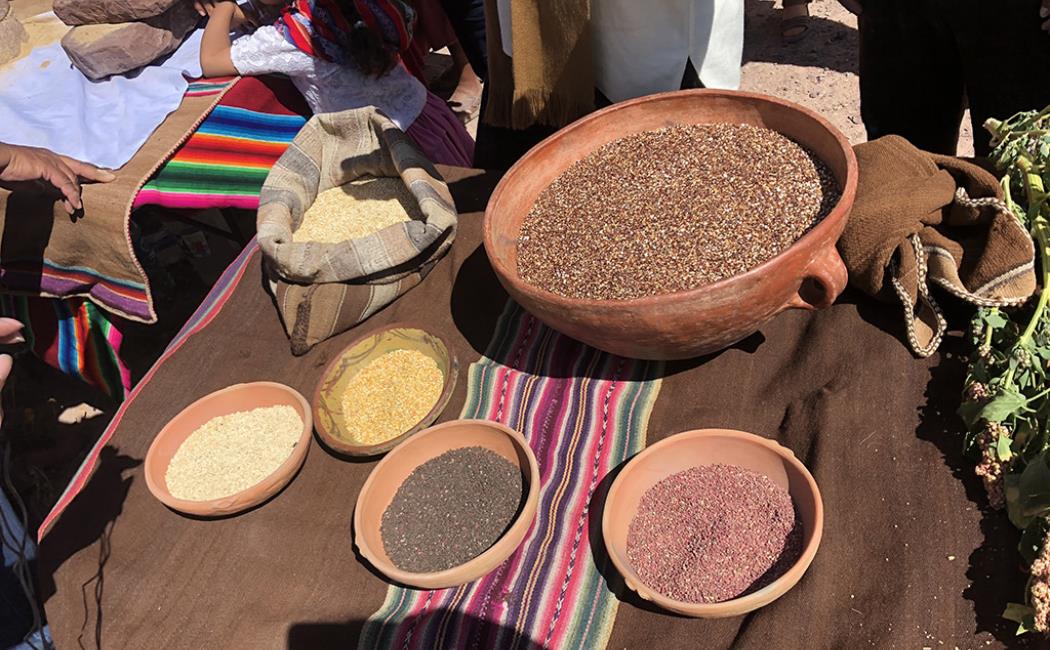
Finding ways to feed the world
22 August, 2019
By 2050, global food production will have to almost double to feed the predicted population of 9 billion people. Yet achieving food security for the future is plagued with challenges, from increasing pressures of global warming and shifting climatic belts, to a lack of viable agricultural land and the significant burdens on freshwater resources.
Plant scientists at KAUST are searching for ways to improve crop resilience, boost plant stress resistance and combat emerging diseases. By showcasing the latest genome editing technologies, the team is highlighting ways of securing enough nutritious, high-quality food to feed the world’s growing population.
Click here to read the full story
Image: Bowls of traditionally grown quinoa. Quinoa is an incredibly resilient plant that can grow in poor, salty soils and at high altitudes. It has the potential to provide a healthy, nutritious food source for the world using land and water that currently cannot be used. A KAUST team sequenced the plant, which will allow breeders to control plant size to favor shorter, stockier plants with sweeter tasting seeds.
© 2019 Mark Tester